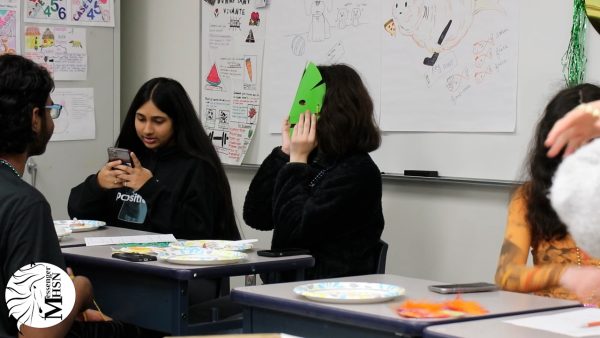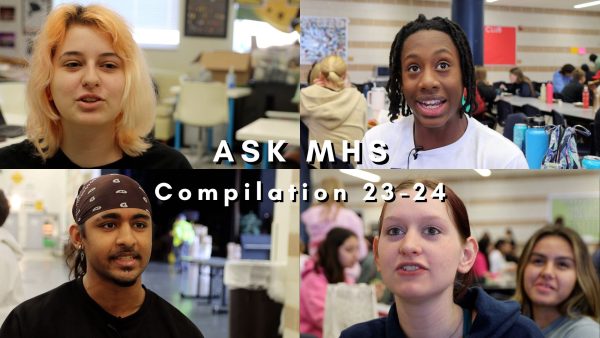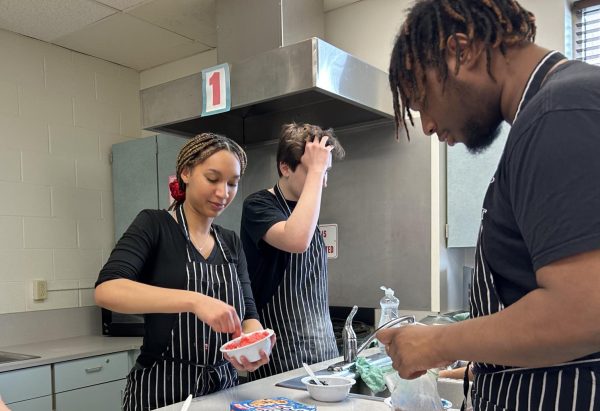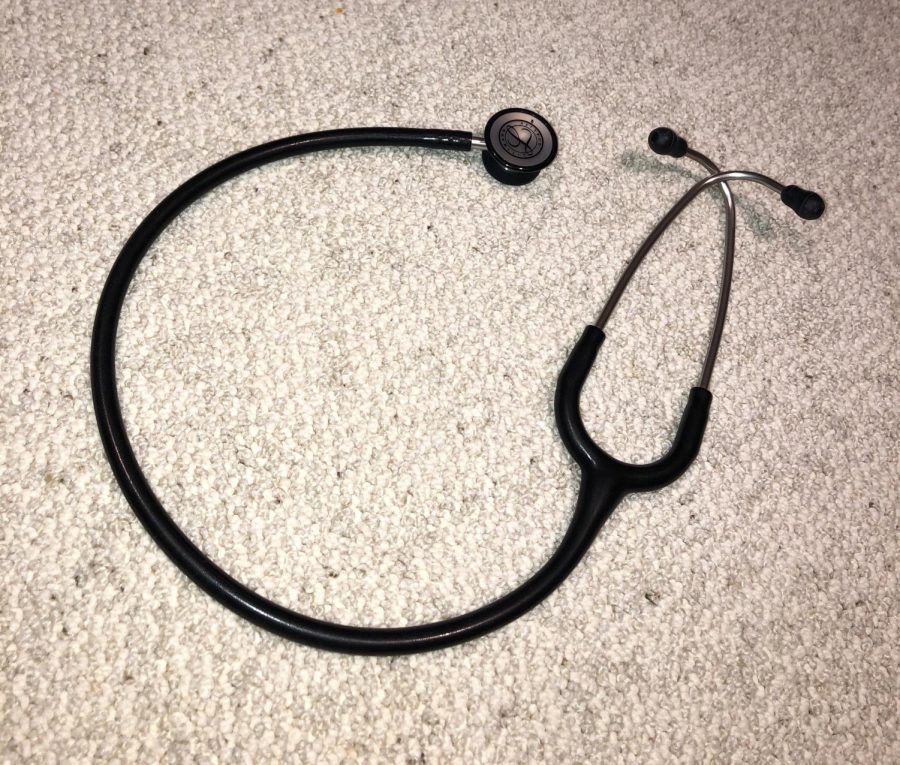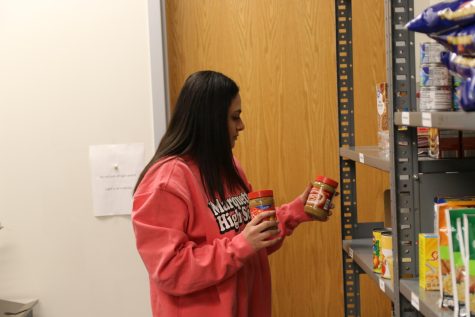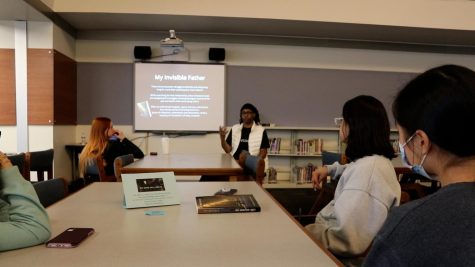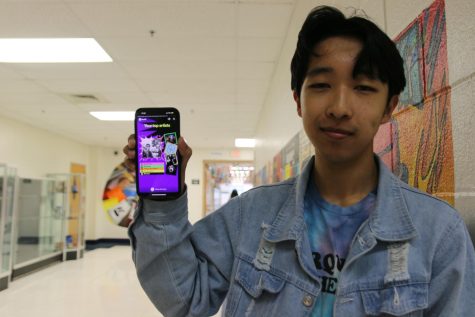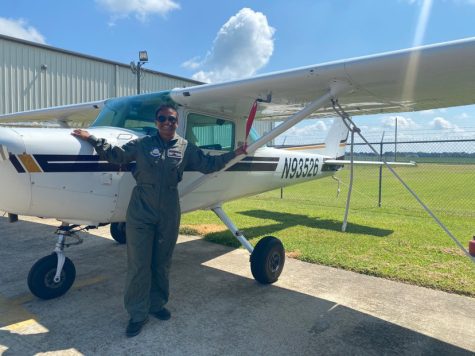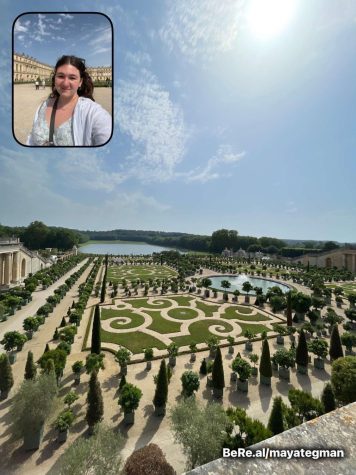Doctors Working the Frontlines In the Coronavirus Pandemic
Media by Sarina Jamal
The stethoscope of Dr. Nida Jamal, a senior resident physician adult neurologist, who is helping to combat the COVID-19 pandemic.
One family, two doctors, three children: the perfect family.
Growing up in a house with doctors as parents, Sarina Jamal, freshman, considered herself lucky. Until her family became one of the most impacted by the COVID-19 outbreak.
“I’m really scared,” Sarina said. “The coronavirus is spreading really fast and both my parents hold the possibility of getting infected.”
Sarina has two younger siblings, ages six and seven, who have a high chance of getting infected due to their age.
“Even with the risks to my family, I feel proud of my parents,” Sarina said. “They are heroes.”
Dr. Nida Jamal, a senior resident physician adult neurologist at Saint Louis University Hospital and the mother of Sarina, is one of the doctors combating the virus.
Dr. Nida said the COVID-19 outbreak is one of the most difficult and stressful periods for all healthcare workers.
“I’m always afraid of returning home from work,” Dr. Nida said. “It’s always on my mind that I might be bringing this virus back to my family.”
Dr. Nida has come in contact with patients who have tested positive for the virus, but with the proper gear, she has not gotten infected.
“We have to use the same equipment multiple times before we are allowed to get new ones,” Dr. Nida said. “I have not gotten the virus, so it is working, but it is extremely hard to use equipment multiple times that is only meant for one use.”
Not only is Dr. Nida’s life at work changing but her life at home is too.
To prevent her family from getting the virus, Dr. Nida goes through proper precautions such as changing her clothes and taking a shower before greeting them.
“In addition to this constant fear of being infected and infecting those who I love, the entire way of life has changed,” Dr. Nida said. “The kind of things we used to take for granted we can’t do anymore.”
Pournika Muniyandi, a medical student at the University of Missouri-Kansas City, is another affected by the virus.
“I had to move back home, which hurts my medical school education,” Muniyandi said. “What’s harder is not being able to do much to help and watching healthcare professionals trying to combat this virus blind-sighted.”
Muniyandi and other medical students across the country have been setting up Personal Protective Equipment (PPE) drives to support health care workers.
With the help of medical students, Missouri has raised 1.5 million PPE items, including masks, shields, gloves, and goggles. These supplies were then distributed to 147 hospitals and first responders.
To help support the drives, Muniyandi is advocating for citizens to stop mass purchasing PPE equipment and to donate any extra to the drives.
As for education, Muniyandi said learning has become increasingly difficult, and online learning isn’t replicating the hands-on training she needs to be successful.
“I am hoping this virus passes by fast,” Muniyandi said. “If everyone can self-isolate a little longer, things can go back to normal.”
Your donation will support the student journalists of Marquette High School. Your contribution will allow us to purchase equipment and cover our annual website hosting costs. You may become a PATRON by making a donation at one of these levels: White/$30, Green/$50, Blue/$100. Patron names will be published in the print newsmagazine, on the website and once per quarter on our social media accounts.
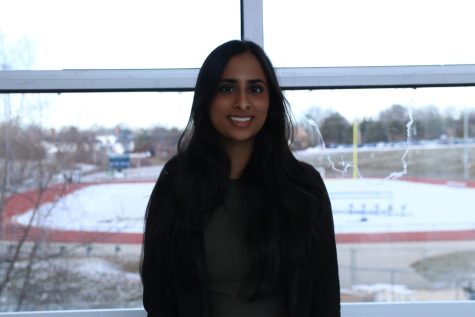
Aarushi Bute, senior, is the Editor-in-Chief of the Marquette Messenger. She is passionate about public health, politics, and writing, particularly to...




